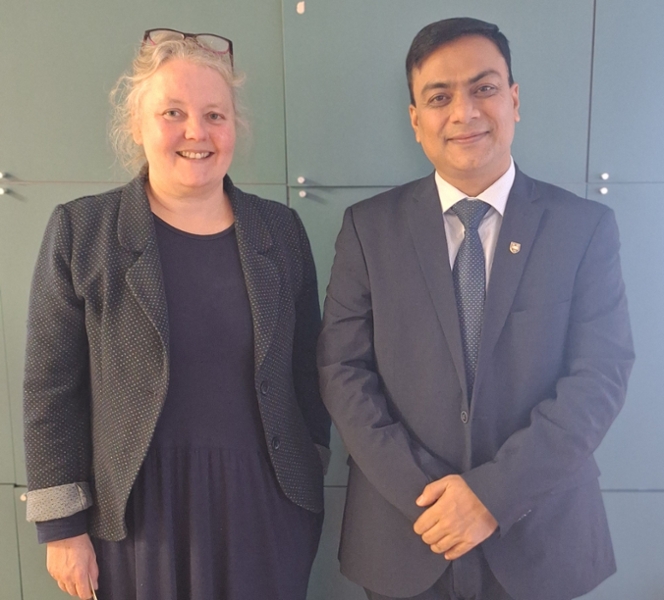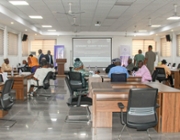Change for local government in Bangladesh

28 October 2025
During a recent visit to London and a meeting with CLGF Secretary-General Lucy Slack, Professor Dr Mohammad Tarikul Islam explained about the changes in prospect for local government in Bangladesh.
Professor Islam was invited by the Interim Government of Bangladesh to serve on the Local Government Reform Commission. With over twelve years of experience in teaching and research into local government, and serving as the Professor of the Department of Government and Politics at Jahangirnagar University in Dhaka and visiting professor of Oxford, Cambridge and Harvard, he is well placed to examine existing structures and systems at the local level and put forward ideas for change.
Credible changes to systems and structures
The review process lasted for just over six months, and the focus of the Reform Commission is to propose credible changes to systems and structures, and to bridge the gap between people and local politics. The Commission has undertaken comprehensive consultations with many stakeholders, including political parties, throughout Bangladesh, in addition to conducting detailed interviews with 46,080 people using a structured questionnaire with the assistance of the Bangladesh Bureau of Statistics.
Simplifying the vote
One of the key issues emerging centres on independence, as the current system is seen to favour those local government candidates who are affiliated to specific political parties, leading to suggestions of vote rigging and bias, and consequently deterring people from standing for election. Another consideration is that, at present, there are five tiers of government, including city, municipal (Pourshava), district (Zila Parishad), sub-district (Upazila Parishad) and village (Union Parishad); and the Commission strongly favours moving to a more flexible, credible and cost-effective approach. As well as reducing the bureaucracy, this would bring down the complex and costly process of running elections for all five levels.
Decentralisation and inclusion
Professor Islam expressed the need for greater decentralisation and for local government to be more empowered by national government, with respect to powers and functions, but particularly in terms of finances. The Reform Commission has suggested an increase in taxes to allow more money for local services. Improving inclusivity has also been highlighted as a major priority. Women have had the option to participate in local government through quotas in union parishads, urban areas, municipalities, and city corporations throughout the past decade. Developing and implementing policies to support the reform plan for women's reserved seats is the demand of time.
The Reform Commission has shared their findings, and the next steps are in the hands of the Interim Government, which is studying the recommendations and will be drafting new legislation.
Impacting lives and democracy
Professor Islam said: “These are very exciting times for the local government of Bangladesh, the people, and the country. The proposed actions, when implemented, could make an enormous impact on improving people’s lives and contributing to local democracy”. Local Government Expert always in favor of a permanent local government commission as it can assess, analyse, and offer suggestions for the advancement of many facets of the local government system.
Look out for a longer report on the finds of the Commission, which we hope to publish in the next edition of the Commonwealth Journal of Local Governance
Back to News





